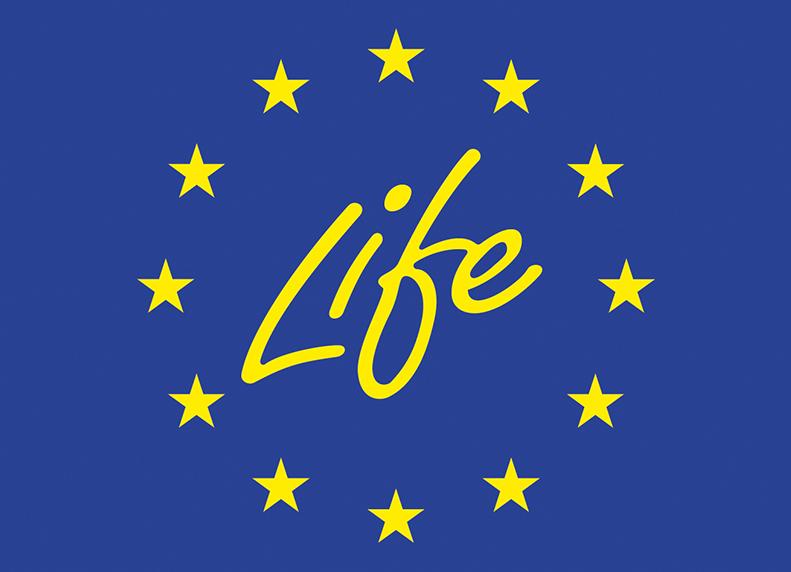Contact: Mireia Figueras Alsius
HCWH Europe’s project helped develop the Mediterranean as a best-practice region for low-carbon healthcare in Europe supported by progressive environment and health policies.
Background
The global healthcare sector’s climate footprint is equivalent to 4.4% of global net greenhouse gas emissions that contribute to climate change, which negatively impacts the health of the very communities the sector serves. There is, therefore, a powerful incentive for the healthcare sector to take action - firstly to reduce the volume of its greenhouse gas emissions, and secondly to become a leading advocate for societal and political action on climate change.
As global temperatures are increasing so are the negative health impacts and the Mediterranean region already faces specific threats from climate change (e.g. extreme heat waves and rising sea levels), but also has many opportunities to prevent or reduce emissions (e.g. solar energy and energy efficient cooling). This project aimed to address these opportunities and challenges and to facilitate the transition to low-carbon healthcare by working with hospitals in the Mediterranean region.
Achievements
The Low-carbon healthcare in the Mediterranean region project supported participating hospitals to establish internal carbon management teams and plans, facilitated knowledge and best practice sharing, and also encouraged replication across the Mediterranean region through a low-carbon healthcare toolkit that can be used by other hospitals.
Healthcare decarbonisation toolkit: Experiences from the Mediterranean region


The Healthcare decarbonisation toolkit: Experiences from the Mediterranean region, aims to facilitate the integration of climate action into healthcare planning and is aimed at those working in healthcare facilities that want to develop a carbon management plan for their organisation.
The toolkit offers an introduction to the key concepts of carbon management, as well as a practical step-by-step guide to developing a carbon management plan to chart a course for decarbonisation in line with the Paris Agreement.
The toolkit was presented alongside case studies from the participating hospitals (Healthcare carbon management in the Mediterranean region) at the 2021 European Healthcare Climate Summit.
Accelerating healthcare decarbonisation in the Mediterranean region
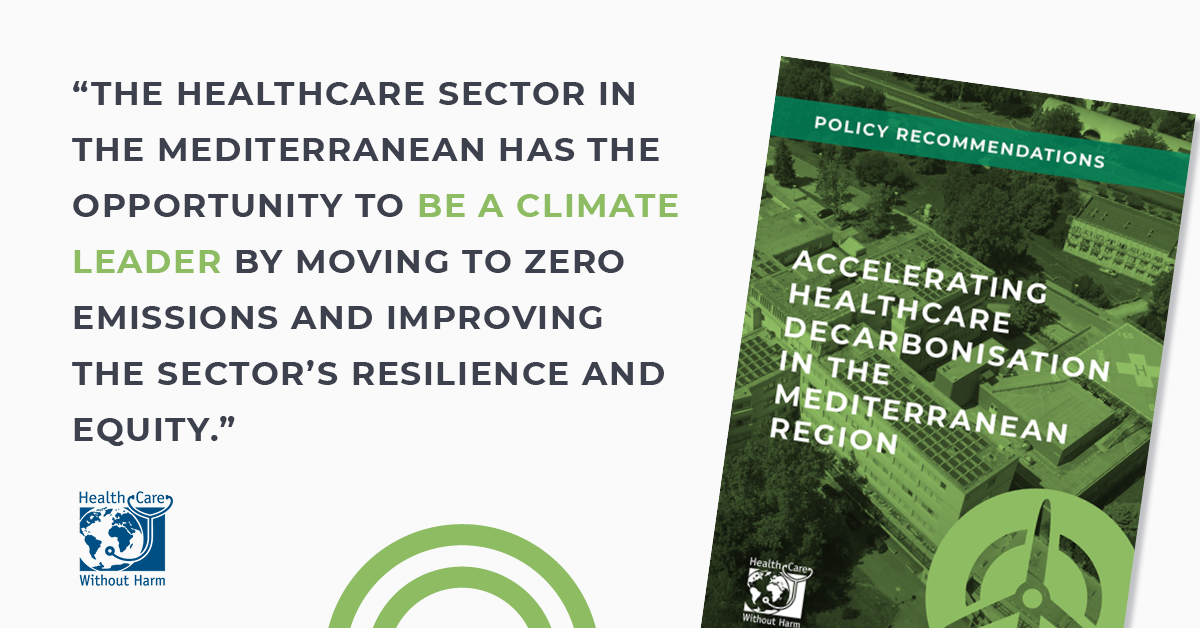
The publication presents three main recommendations for policymakers to build a resilient, zero-carbon healthcare system that is protected from the worst impacts and supports a healthy society. It also provides an overview of climate impacts in the Mediterranean region, as well as the current state of climate and health policy in four key countries.
The policy recommendations were developed in consultation with a broad range of relevant stakeholders within and outside the Mediterranean healthcare sector during the 2021 European Healthcare Climate Summit.
Project information
Participants:
- Departament de Salut Xàtiva - Ontinyent, Spain
- Hospital Lucus Augusti, Spain
- Hospital Pedro Hispano, Portugal
- Meyer Children’s Hospital, Italy
- General Hospital of Syros, Greece
Countries of implementation: Spain, Portugal, Italy, Greece
Project duration: October 2019 - December 2021 (27 months)
Target groups: Hospitals in the Mediterranean region, policy makers, NGOs, networks and coalitions working with health and environment, civil society
HCWH Europe gratefully acknowledges the financial support of the European Commission (EC)’s LIFE programme and The European Climate Initiative (EUKI) of the German Federal Ministry for the Environment, Nature Conservation and Nuclear Safety (BMU). HCWH Europe is solely responsible for the content of this project and related materials. The views expressed do not reflect the official views of the EC or BMU.
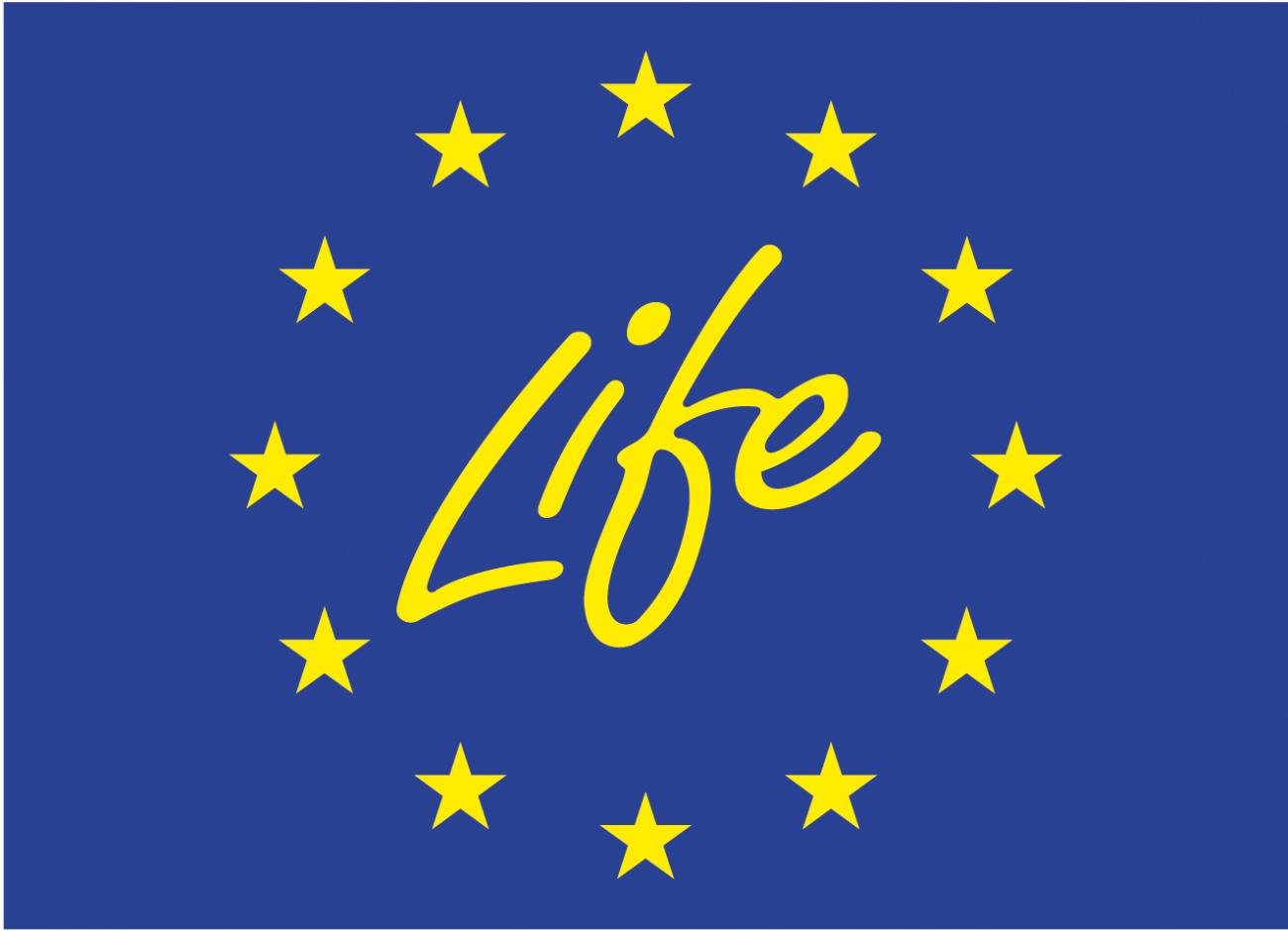

Contact: Mireia Figueras Alsius
Quick links: Resources
HCWH Europe’s project helped develop the Mediterranean as a best-practice region for low-carbon healthcare in Europe supported by progressive environment and health policies.
Background
The global healthcare sector’s climate footprint is equivalent to 4.4% of global net greenhouse gas emissions that contribute to climate change, which negatively impacts the health of the very communities the sector serves. There is, therefore, a powerful incentive for the healthcare sector to take action - firstly to reduce the volume of its greenhouse gas emissions, and secondly to become a leading advocate for societal and political action on climate change.
As global temperatures are increasing so are the negative health impacts and the Mediterranean region already faces specific threats from climate change (e.g. extreme heat waves and rising sea levels), but also has many opportunities to prevent or reduce emissions (e.g. solar energy and energy efficient cooling). This project aimed to address these opportunities and challenges and to facilitate the transition to low-carbon healthcare by working with hospitals in the Mediterranean region.
Achievements
The Low-carbon healthcare in the Mediterranean region project supported participating hospitals to establish internal carbon management teams and plans, facilitated knowledge and best practice sharing, and also encouraged replication across the Mediterranean region through a low-carbon healthcare toolkit that can be used by other hospitals.
Healthcare decarbonisation toolkit: Experiences from the Mediterranean region
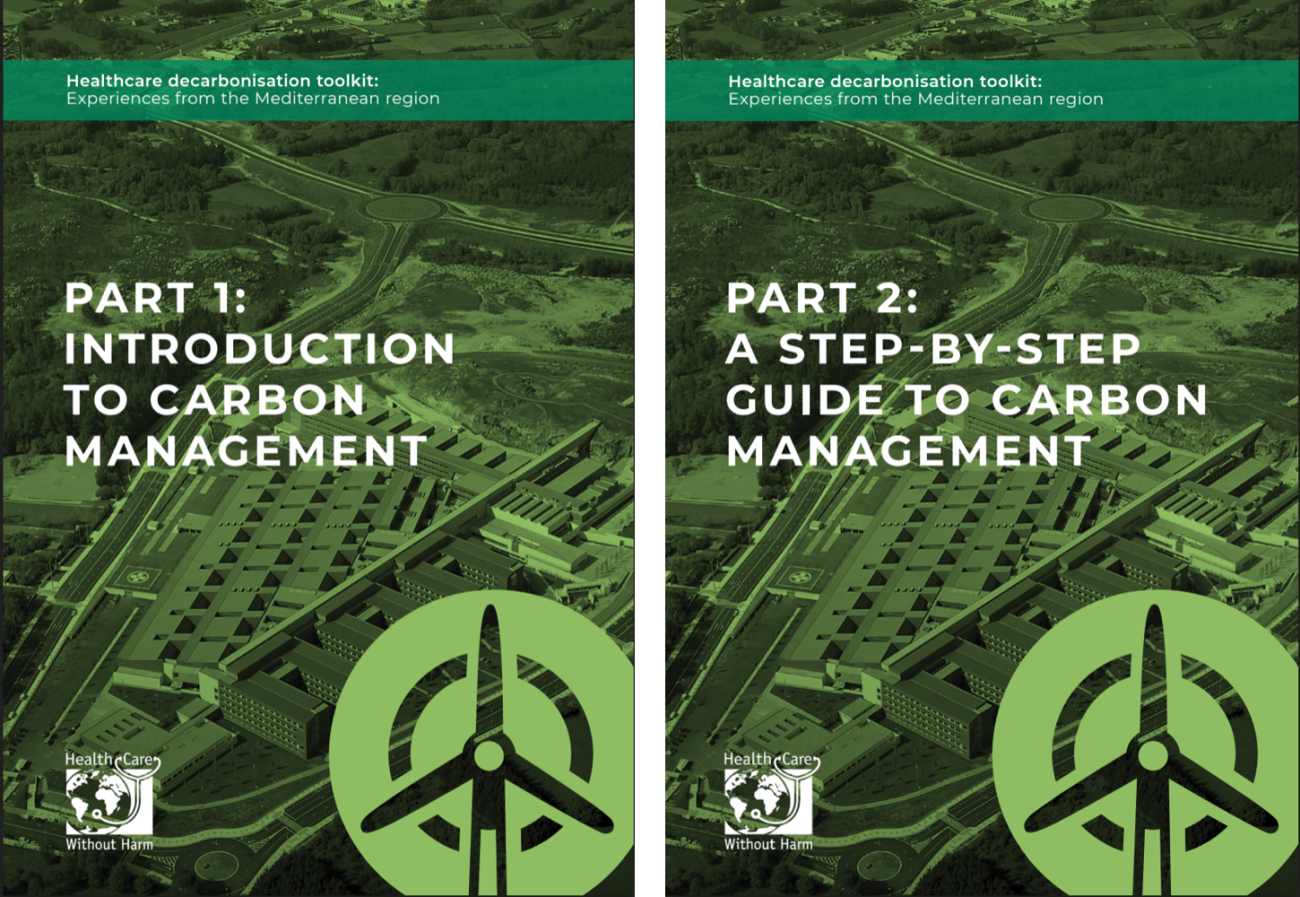
The toolkit offers an introduction to the key concepts of carbon management, as well as a practical step-by-step guide to developing a carbon management plan to chart a course for decarbonisation in line with the Paris Agreement.
The toolkit was presented alongside case studies from the participating hospitals (Healthcare carbon management in the Mediterranean region) at the 2021 European Healthcare Climate Summit.
Accelerating healthcare decarbonisation in the Mediterranean region
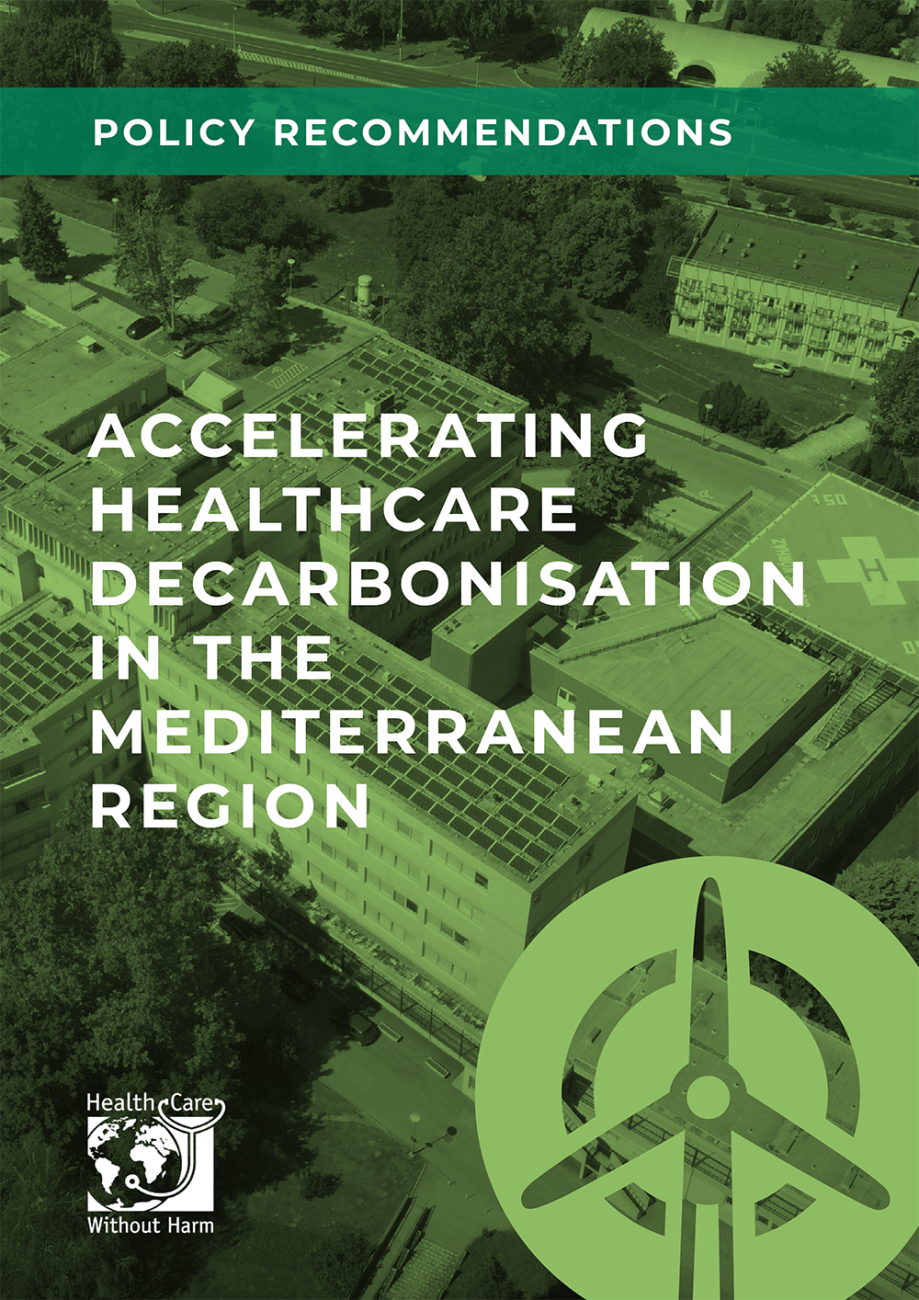
The publication presents three main recommendations for policymakers to build a resilient, zero-carbon healthcare system that is protected from the worst impacts and supports a healthy society. It also provides an overview of climate impacts in the Mediterranean region, as well as the current state of climate and health policy in four key countries.
The policy recommendations were developed in consultation with a broad range of relevant stakeholders from both within and outside of the Mediterranean healthcare sector during the 2021 European Healthcare Climate Summit.
Project information
Participants:
- Departament de Salut Xàtiva - Ontinyent, Spain
- Hospital Lucus Augusti, Spain
- Hospital Pedro Hispano, Portugal
- Meyer Children’s Hospital, Italy
- General Hospital of Syros, Greece
Countries of implementation: Spain, Portugal, Italy, Greece
Project duration: October 2019 - December 2021 (27 months)
Target groups: Hospitals in the Mediterranean region, policy makers, NGOs, networks and coalitions working with health and environment, civil society
HCWH Europe gratefully acknowledges the financial support of the European Commission (EC)’s LIFE programme and The European Climate Initiative (EUKI) of the German Federal Ministry for the Environment, Nature Conservation and Nuclear Safety (BMU). HCWH Europe is solely responsible for the content of this project and related materials. The views expressed do not reflect the official views of the EC or BMU.
